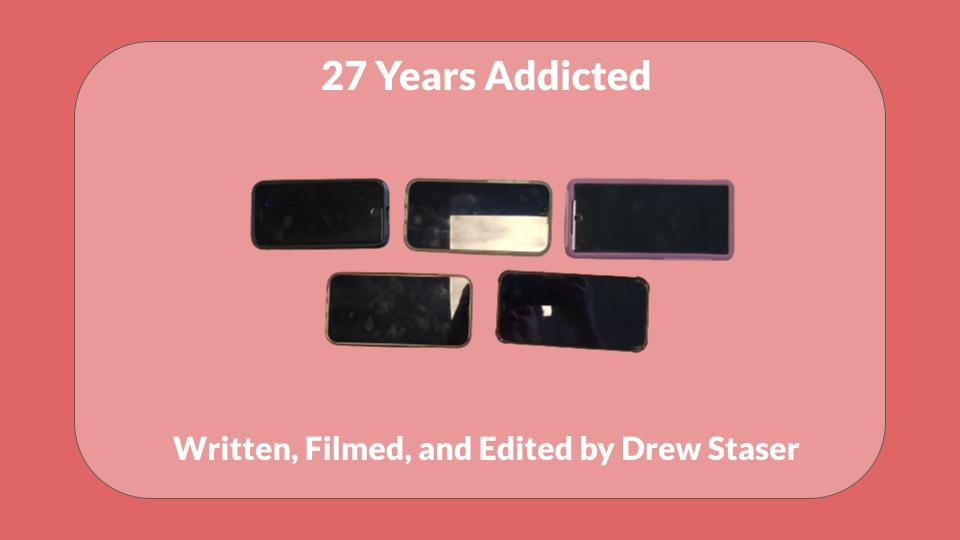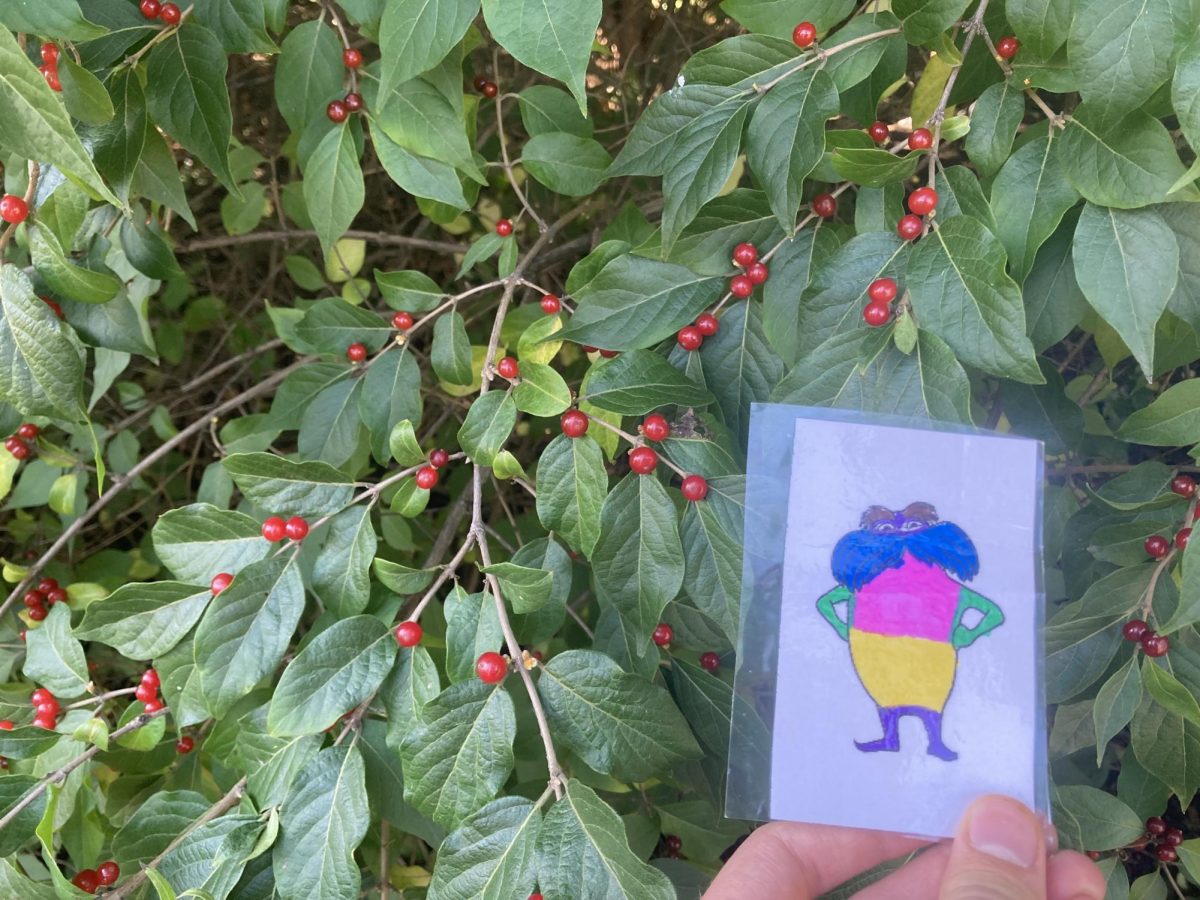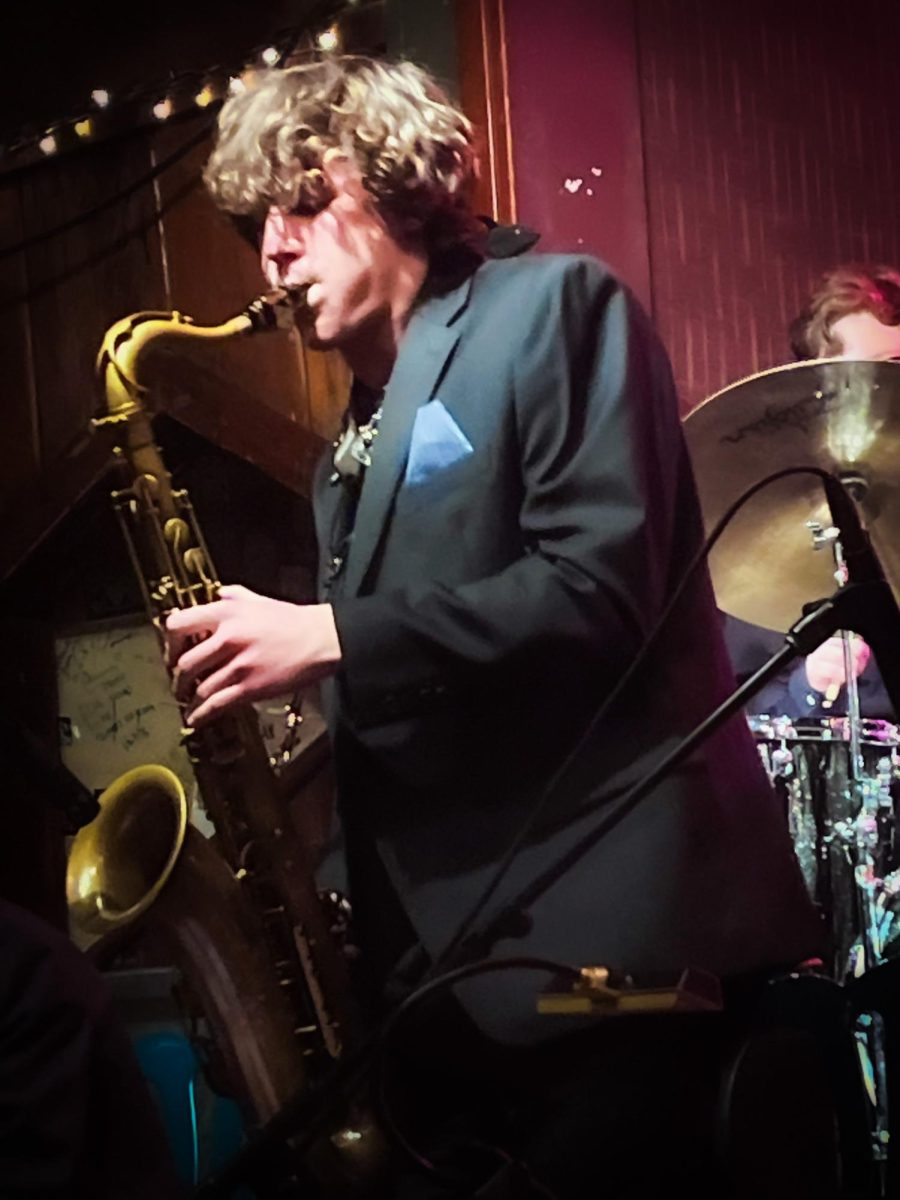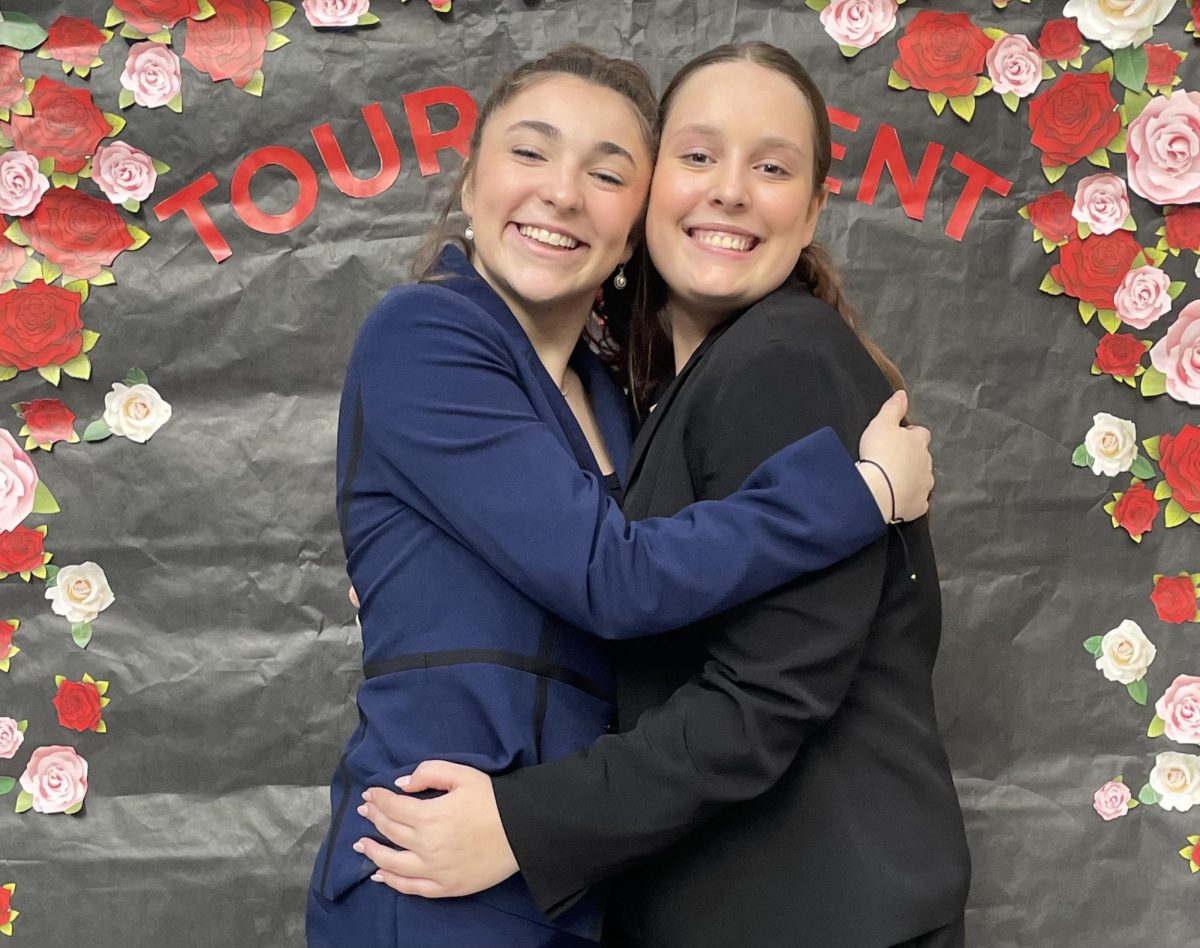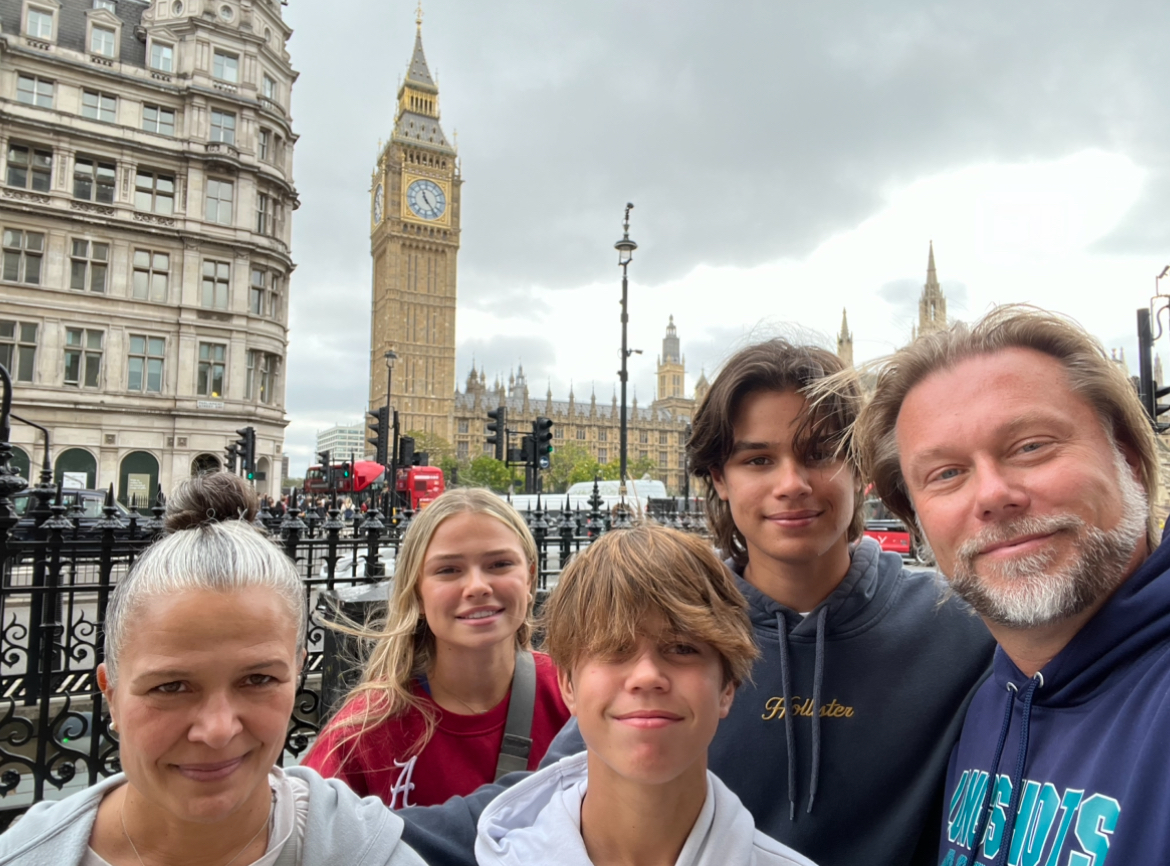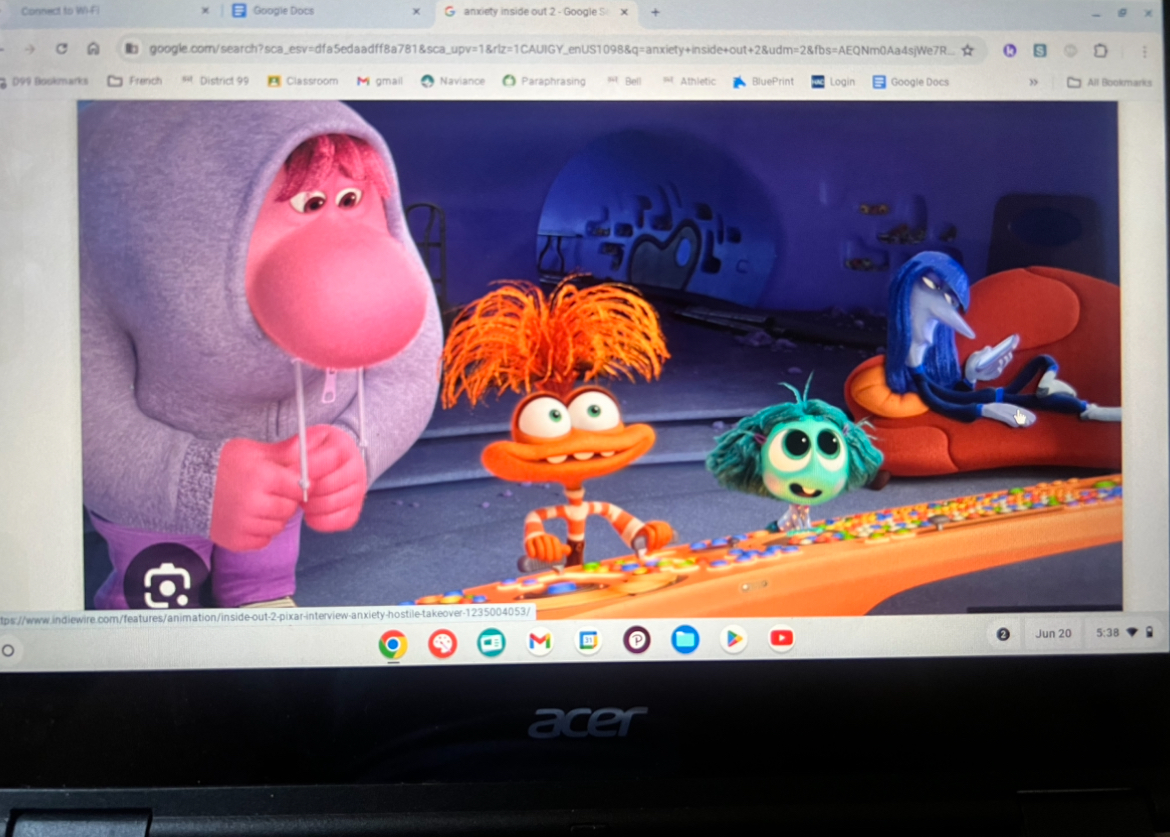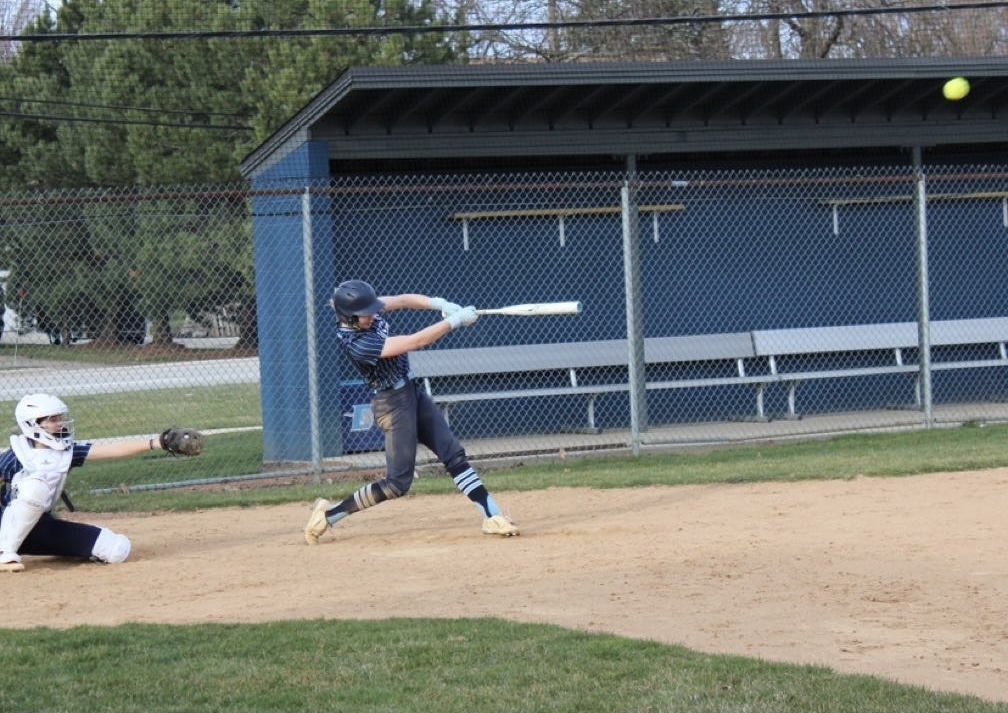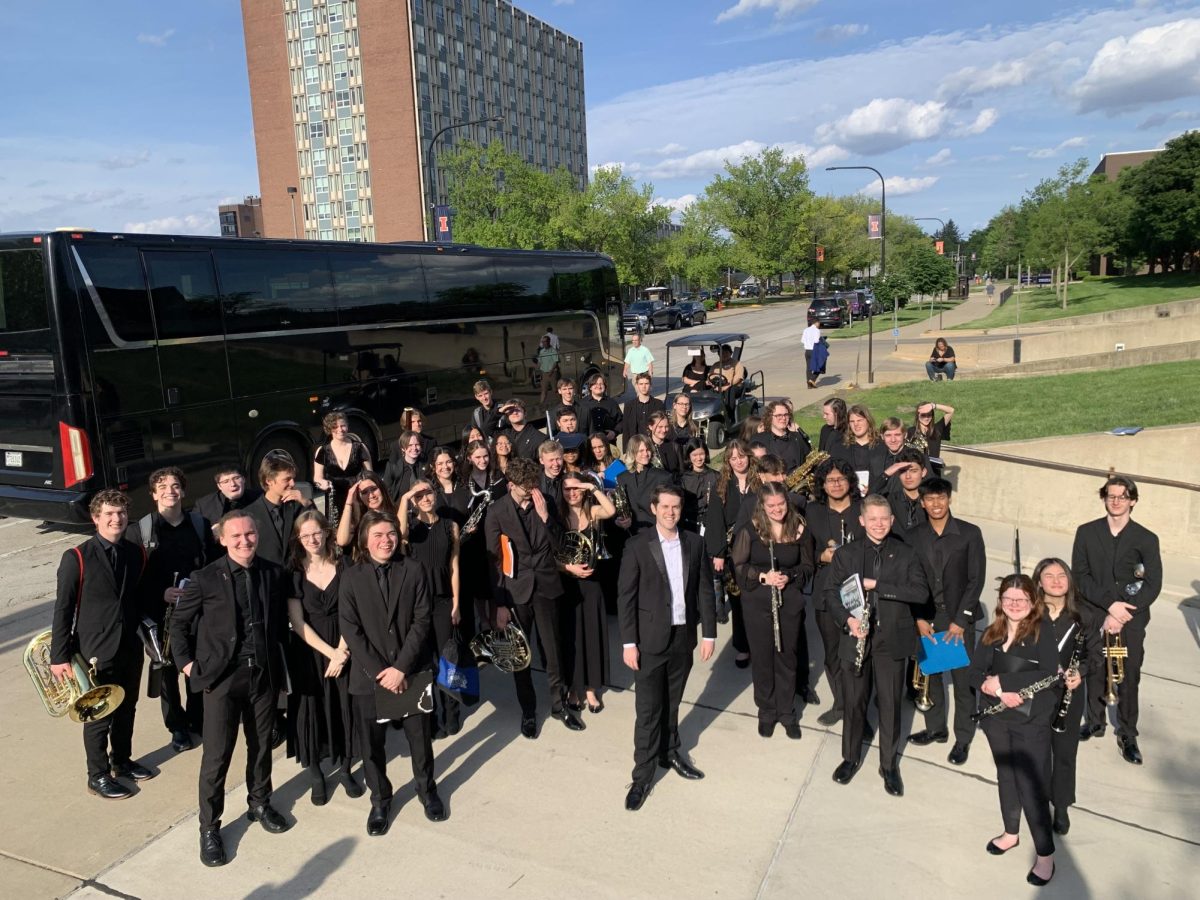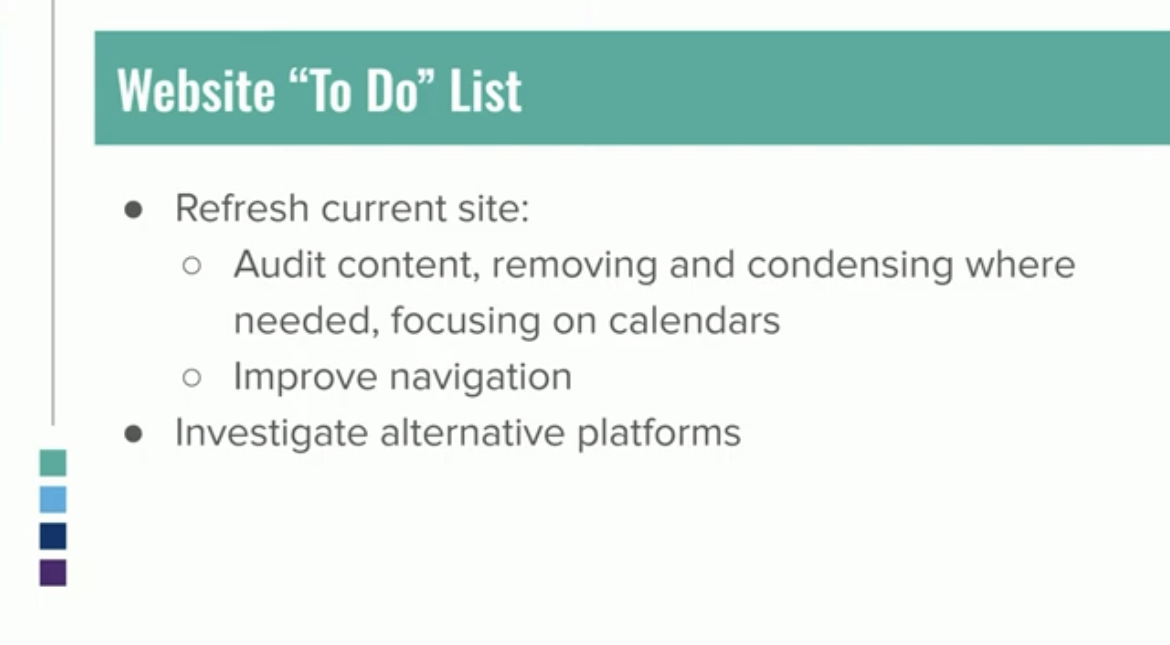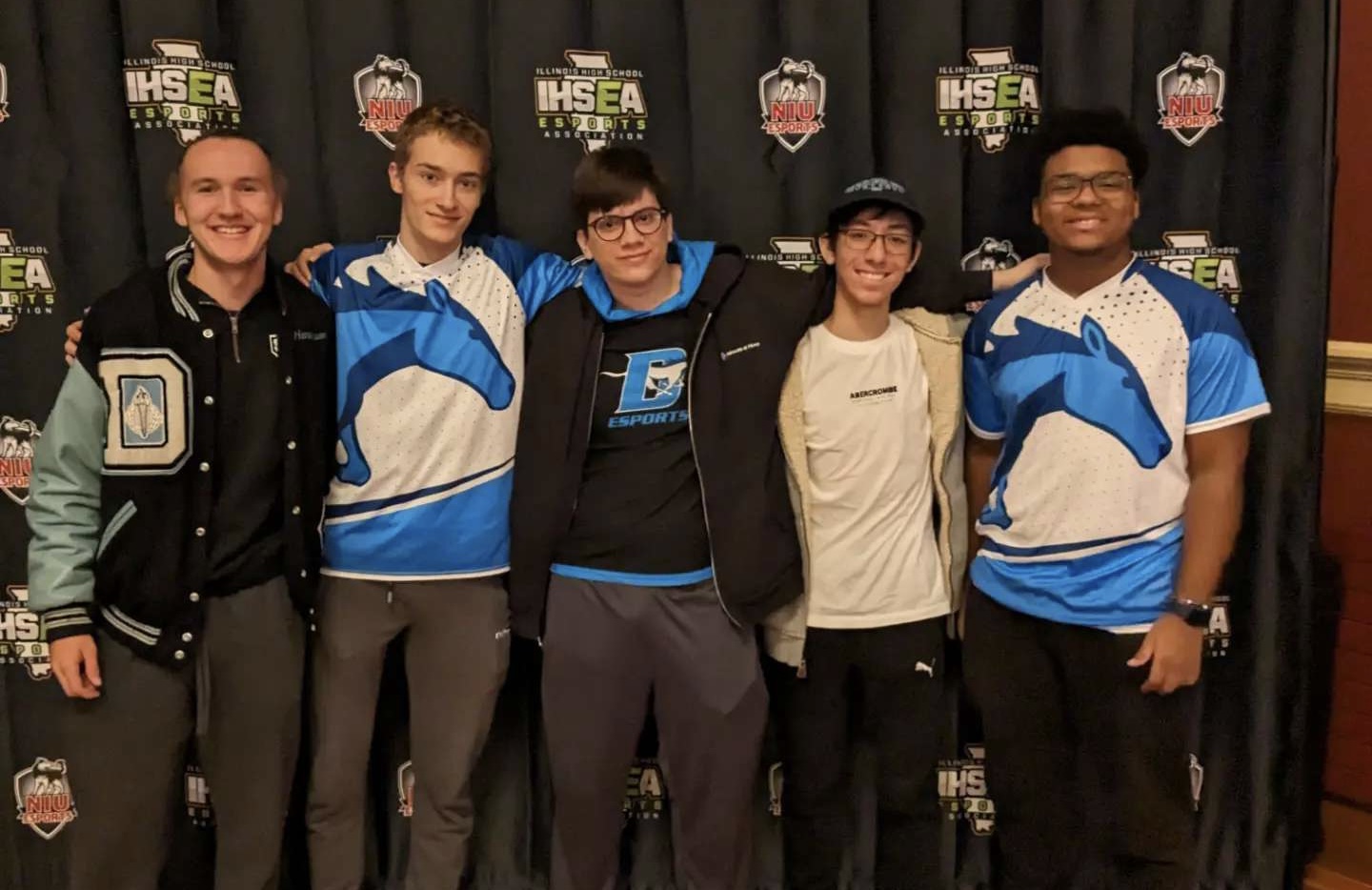
Senior Arnas Meliukstis competes to bring glory to esports
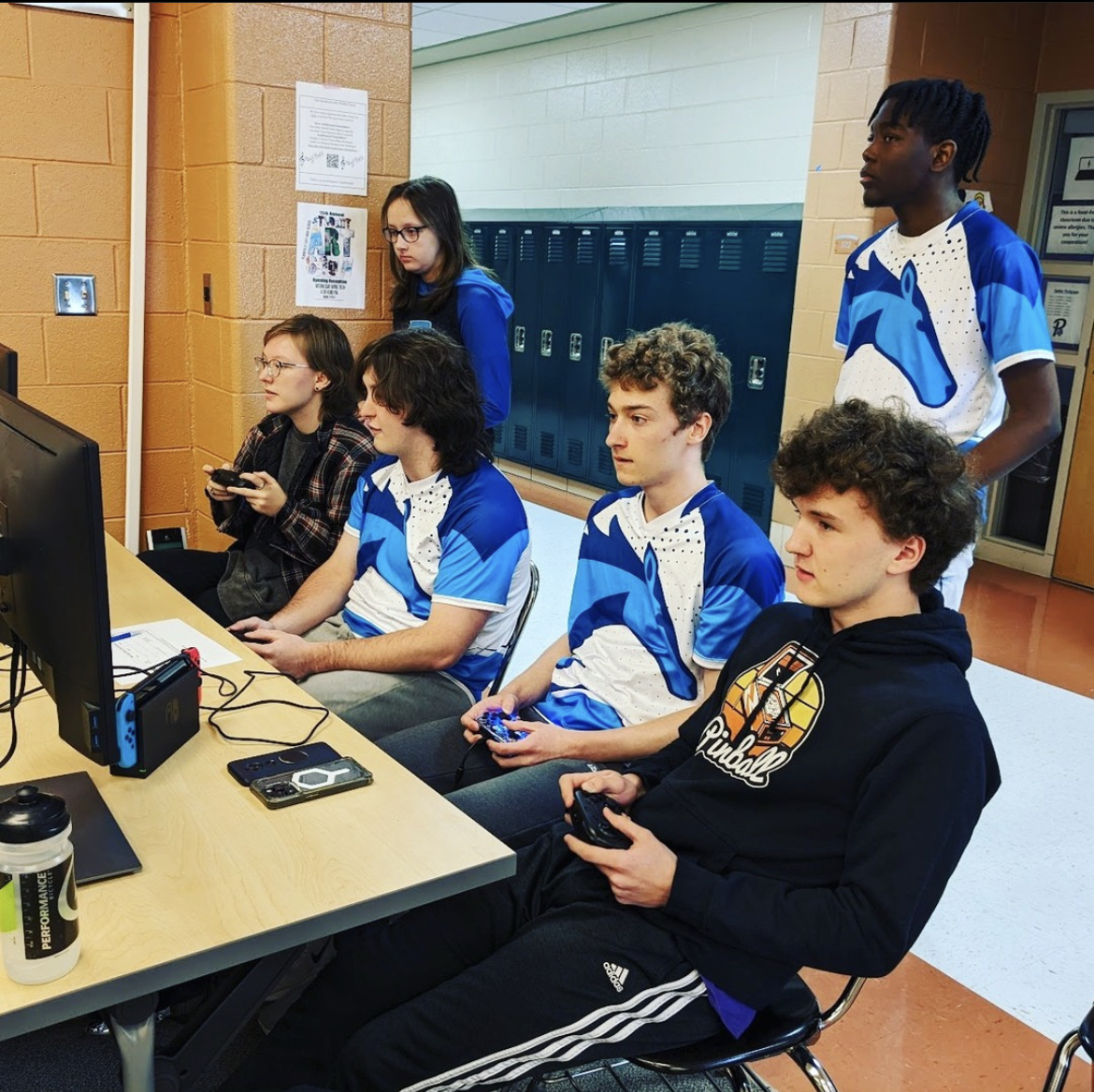
It’s 5:30 p.m. on a rather cool Wednesday, and suddenly a disembodied, robotic voice announces “30 seconds left on the clock.” The rapid clicking of plastic keys, senior Arnas Meliuksts knows that letting down his teammates is not an option. He strives to win.
Meliukstis is a member of the DGS esports program, a type of sport that, unlike the average sport, is played entirely online. Although commonly seen as a hobby, esports has seen a substantial amount of growth within the past few years, rivaling that of major sports franchises. In spite of this massive influx of money, esports has only recently started to get picked up by the masses, despite existing in the technical sense since 1980.
Meliukstis has played for the program for about two years now, playing for a variety of games and he hopes that as time goes on, people take it as seriously as they do for other sports.
“Some people see it as a nerdy thing or not a real sport; see where they come from with that. Except it is way more serious than that, you know, it’s been going on for the past couple of years from just other games, and it’s just the eSports industry has just been growing in general. So, you know, it’s like, basically a serious thing now and it’s kind of categorized as a sport,” Meliukstis said.
Unlike other sports that center around one singular game, esports revolves around “seasons,” in which every few months a handful of various games are active. For example, in DGS’ case, the games active during the winter season are “Fortnite,” “Overwatch 2” and “Super Smash Bros Ultimate.” Each game’s ruleset is vastly different from each other, and Meliukstis enjoys the ability to have unique experience with each match he plays.
“Usually I’m very excited…If they’re a good team, I will be kind of nervous, but I’m still extremely excited for it. I’m always looking forward to this, I have a great time,”
— Arnas Meliukstis
Meliukstis’s role is a multifaceted one. He’s captain on the varsity Fortnite team, a member of the “Overwatch 2” team and a member of the “Valorant” junior varsity team. Although an avid player of all these games, Meliukstis joined out of pure coincidence.
“Honestly [from] over the announcements, one time last year, there was an announcement for the whole club. And I was interested in it. I showed up to the first meeting and there were a lot of people there, and I just kind of just wanted to play “Fortnite” and I ended up playing more things than just that,” Meliukstis said.
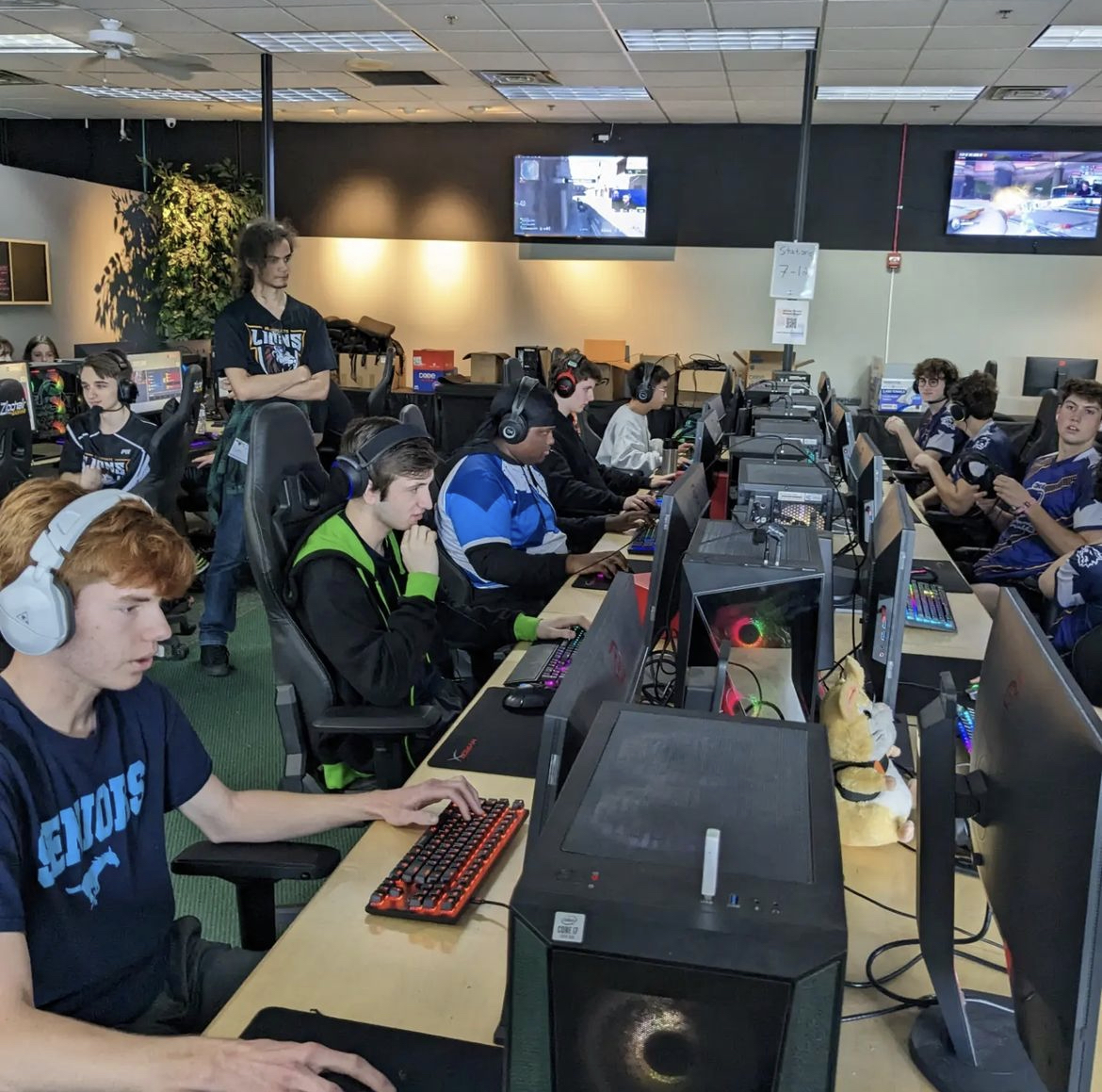
Like all other sports in Illinois, esports is run by the IHSA, specifically under the IHSEA, a branch solely designated for esports. This means that DGS can compete against up to 65 teams all based in Illinois. With all the coordination and communication needed, one man stepped up to take on that role: physics teacher and head sponsor Stephen Zownorega.
“I call myself the esports secretary. I like to organize and make sure that teams have captains that are running practices and making sure that our matches are all set for each week. And we are operating I think over 12 to 15 different games this year, and I just try to make sure that they’re all running smoothly,” Zownorega said.
Zownorega is the key figure behind the program. Running each individual team is an exceptionally involved task, requiring constant communication between each player and with other coaches all to make sure everything is happening as it is supposed to.
For Zownorega, he recognizes that undertaking the job is an involved task, but he doesn’t mind that.
“This program started off as a strictly “Smash Brothers” club about what I’d say eight or nine years ago. And recently, this group, [the] IHSEA has come through and then added a whole bunch of other games and so yeah, the program has been around for a while, and it has recently become an IHSA recognized sport. And so we’ve been competing that way,” Zownorega said.
With all the growth esports has gone through, he wishes for people to see just how involved esports is. He understands that there is a large amount of practicing that happens.
“I know in my experience, a lot of problem solving happens, right? You’re going through “Mario” and you keep doing the same thing, you realize I just can’t do that, I need to figure out a new method to get through there. And so I think if you start to think metacognitively about it, like what are you learning you learn a lot, and I think EA Sports have really taken off because the amount of communication between a team is crucial for success,”
— Stephen Zownorega
Zownorega finds importance in winning, but he holds the relationship building between members in much higher regards. While the goal is to be successful, he wants students to have a great time and get to know each other.
“From a community standpoint, it’s all from our students. A person like Arnas, who is just a positive individual who’s willing to bring other people in and teach them the ropes and all of that. And so individuals that take leadership roles have been a big portion of making a great community… The other thing that I think we’re trying to do is just give people talking about something that they love,” Zownorega said.
Part of this includes working and conversing with each team member to ensure that they feel comfortable and at their best in order to assure that everyone is content. For Meliukstis’s success, Zownorega helps to encourage Meliukstis to try his best.
“I think the moment I talked to Arnas he was like “alright, I want to go after this, I want to do this.” And it’s like, Okay, let me give you the tools to make that happen, let me give you the position to make that happen. And I think when he was paired up with a couple of other individuals that felt that way, it was just giving him the opportunity to do that and Arnas grabbed it and ran with that,” Zownorega said.
Melukstis attests to the benefits he’s felt of having a supportive and friendly environment provided to him at every step. In fact, one benefit is that having a friendly environment to play in can lead to increased success and strategization.
“When I first walked into the club I knew maybe two or three people, and now I know basically everyone there. We’ve learned from each other, we’ve helped each other. I made new friends and everything, so yeah, it’s definitely helped out positively,” Meliukstis said.
An important component of the esports program is the sizable amount of community-building events. Whether it’s a casual game night or a competitive scrimmage, all members are encouraged to participate and build relationships, like players do in any other sport.
Senior Krrish Patel is someone who enjoys participating in these social events. He appreciates the opportunities for making new friends.
“Esports has 100% made it so much easier for me to meet new people and make great friends out of existing ones. It’s really made me want to strive to get better at the games and show others that all of the time that I have spent practicing isn’t for nothing, most importantly I’m proving to myself that I can really do it if I try hard enough,” Patel said.
Patel is a member of the varsity “Fortnite” team, where he and Meliukstis play “Duos”, a game type where 50 teams of two fight to be the last team standing. Patel realizes how he and Meliukstis complement each other’s play styles.
“Duoing’ with Arnas has been really great, he’s a great player so I don’t have to be worried about him at all times. Arnas and I can really just reflect on each other and do better the next game, we always try and figure out what we can do better as a team,” Patel said.
Patel and Meliukstis have played as a duo for two years now, and this allows for the two to have an enhanced method of communication.
“We have to try and be considerate of each other when it comes to situations where one person needs help, we call it out right away. The communications are the most important part for us, both of us being really aggressive players [and] we like to rush in instinctively,” Patel said.
Patel isn’t the only one who’s grown alongside Meliukstis. Senior Ryan Beulah is good friends with Meliukstis and is involved with the same games as Meliukstis. Beulah’s seen Meliukstis grow his skills.
“Arnas and I are good friends who respect each other’s skill and try to improve ourselves and others when we play, and I really appreciate that about him,”
— Ryan Beulah
Similar to Meliukstis’s practice regiment, Beulah also believes in the importance of working with his teammates and practicing consistently.
“Competing with others and having to practice to get better is the definition of sport, and I think that once people recognize that it’s not nerdy and that you can win real money, esports can get the recognition it deserves. Many people want to compete with others in video games, but most of them don’t join esports because they’re afraid of others judging them,” Beulah Said.
Being worried about how you may be perceived is a valid concern, but Zownorega wants students who are on the line about joining the program to know that it’s worth it.
“Try it out for a couple of times and see what comes out of it, because I think when students do jump into it, they really do feel that community and feel like all these people are very much like me and they like these types. Give it a shot, I’m an introverted person, and I know I would probably look at this and be like, I don’t know if I should jump into this. But I think once a student does, they realize the community that comes with the joy,” Zownorega said.
In the end, Meliukstis wants other students to know that they should feel unashamed for being into esports.
“Yes, esports isn’t a literal “sport” where players run around kicking or throwing balls but it still feels the same way to compete for something. I think it would be awesome if people understood that this is a great idea for many individuals to just do what they love even though again, it’s not in the “sport” realm,” Meliukstis said.
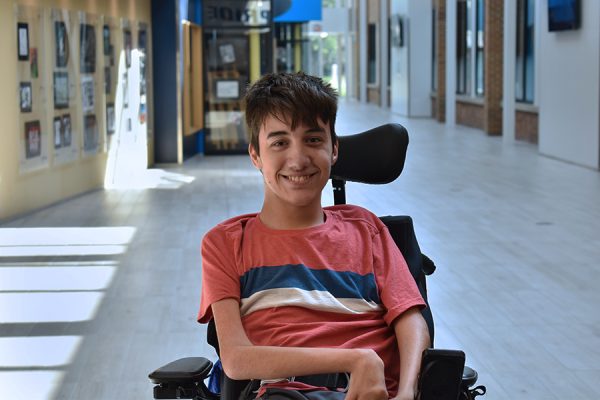
Downers Grove South High School
1436 Norfolk St.
Downers Grove, IL 60516







